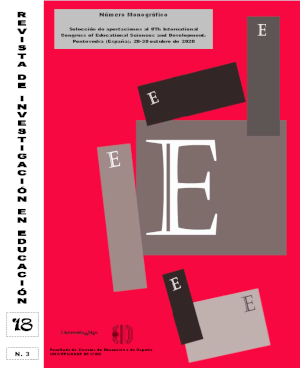Perceived pressure for drinking alcohol and endurance variables in adolescence
DOI:
https://doi.org/10.35869/reined.v18i3.3272Keywords:
Perceived Pressure, Adolescence, Sensitivity to Anxiety, Self-Esteem, Expectations for UseAbstract
Adolescence is a stage characterized by experimentation with changes and new experiences, which at times go through risk behaviors, such as drinking alcohol. At present, involvement of adolescents in this type of experiences is on the rise, generating negative consequences in adolescent development. Some of the factors that promote the start of drinking alcohol is perceived peer group pressure to drink. Therefore, the objectives of this study were to analyze the association between different individual variables, such as self-esteem, impulsivity, sensitivity to anxiety and expectations for drinking alcohol, as well as their involvement in resistance to perceived pressure to drink alcohol in a sample of 1.287 students aged 14 to 18. The Cuestionario Resistencia a la Presión de Grupo en el Consumo de Alcohol [Resistance to Group Pressure to Drink Alcohol Questionnaire], Cuestionario de Expectativas del Alcohol en Adolescentes [Adolescent Expectations for Alcohol Questionnaire], Anxiety Sensitivity Indes-3, Rosenberg’s Self-Esteem Scale and Barratt Impulsiveness Scale-11-A. The results showed the existence of positive associations between perceived pressure and positive expectations for drinking, sensitivity to physical, cognitive and social anxiety and with general impulsivity. Thus, it is important to continue with this line of research and develop innovative intervention strategies for reducing adolescent risk behaviors.
Downloads
Downloads
Published
Issue
Section
License
The acceptance of the papers for publication, means that the printing and reproduction rights are owned by the journal. The conditions of use and reuse of content are those established in the Creative Commons CC BY-NC-ND 4.0 license.



